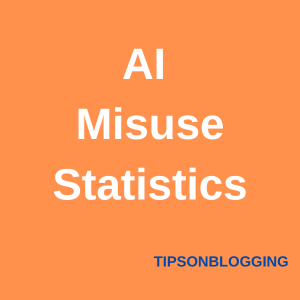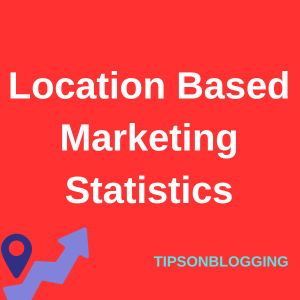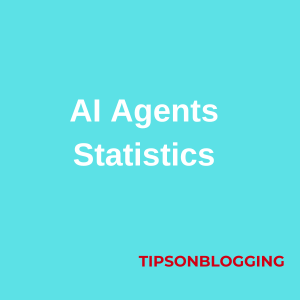Are you curious about the current state of AI misuse and the latest stats? You’re definitely in the right place at the right time.
To understand how much AI is misused—I’ve done all the hard work for you and searched the internet thoroughly; curated, vetted and categorized 29 AI misuse statistics for your pleasure.
Without wasting time, let’s jump to it.
Note: All sources and AI misuse reports mentioned are linked at the bottom
General AI Misuse Statistics
- 77% of users on the internet are worried that their personal data may be stolen, and 74% are afraid companies will use it without their permission.
- By 2030, about 30% of hours worked in the United States’ economy could be automated.
- AI misuse grew by more than 30% from 2022 to 2023, 123 incidents were reported in 2023.
- 71% of people are worried about AI generated scams, and 27% of misuse cases reported involved using deepfakes to influence public opinion.
- 52% of Americans are more concerned than excited about AI, up from 38% in 2022
- AI impacted 68.9% of laziness in humans, 68.6% of privacy and security issues, and 27.7% of loss in decision-making.
- Only 43% of people trust AI tools not to discriminate, 38% trust humans.
Data Privacy Concerns AI Misuse Statistics
- 69% of generative AI users and 63% of TikTok users are concerned their data might be misused or stolen.
- 81% of consumers believe AI companies will use collected data in ways people are uncomfortable with.
- 68% of consumers globally are concerned about their online privacy.
- 45–60% of Europeans believe AI will increase the misuse of personal data.
- Top corporate concerns include data privacy and cyber issues (65%), employee misuse (55%), and copyright risks (34%).
- 71% of respondents are worried about AI-generated scams.
- 27% of reported cases involve using AI to influence public opinion through deepfakes and falsified media.
AI Misuse in Business Statistics
- 300 million full-time jobs could be lost to AI automation.
- Workers in repetitive tasks have experienced wage declines as high as 70% due to automation.
- 79% of companies now have AI usage policies, a 25% increase from the previous year.
- 91% of organizations do not feel prepared to implement AI responsibly, despite 63% prioritizing it.
- 93% of companies recognize the risks of generative AI, but only 9% feel prepared to manage them.
- 80% of businesses worldwide are affected by cybercrimes.
AI Misuse in Professional Setting Statistics
- 55% of medical professionals believe AI isn’t ready for medical use.
- 92% of judicial operators support mandatory regulations and training on AI use in legal work.
- 7 out of 10 judicial operators recognize the risks of AI chatbots, such as inaccuracies and biases, in legal work.
AI Misuse in Education Statistics
- 68% of teachers use AI detection tools, but only 28% know how to respond to suspected misuse.
- 58% of teachers have not received any training on AI, despite its growing presence in education.
- 63% of teachers reported students using AI for assignments got in trouble in 2023-24, up from 48% the previous year.
Global AI Misuse Statistics
- 39% of people worldwide believe AI will “mostly help” their country, while 28% think it will “mostly harm.”
- Only 27% of people globally would feel safe in a self-driving car.
- 71% of people globally expect AI to be regulated, with most countries supporting the need for regulation.
What’s the future of AI Misuse in 2025?
According to the above current statistics, as generative AI continues to grow so will the abuse also grow. The only way you stay safe and mentally sound is to ensure you use AI responsibly and also adapt.
Most importantly, limit how you share your data with companies because you don’t know what they may use it for.
I’ll explain.
Using AI responsibly means using it as an assistant instead of having it take over your whole reasoning to the point your life depends on it.
Don’t want it take your job? then adapt i.e. learn AI related skills because it is going to be hot in the business sector.
This concludes it.
Sources
I got majority of my sources and information from Statista and the following pages:
- UNESCO: UNESCO Survey Uncovers Critical Gaps in AI Training Among Judicial Operators
- Edweek: New Data Reveal How Many Students Are Using AI to Cheat
- LRFoundation: World Risk Poll 2021: A Digital World
- Mckinsey: Generative AI and the future of work in America
- Security Magazine: 69% of generative AI users are concerned their data might be misused
- IPSOS: People are worried about the misuse of AI, but they trust it more than humans
- Pew Research: What Data Says About Americans’ View of Artificial Intelligence
If you are looking for more statistics then check out my other statistics articles:
- Deepseek Statistics
- Humor in Marketing Statistics
- Nostalgia Marketing Statistics
- Product Placement Statistics
- Ad Fatigue Statistics
- Relationship Marketing Statistics
- AI Agents Statistics
- Location Based Marketing Statistics
- Value Based Selling Statistics

Hello, I’m Prosper Noah, a digital marketer with more than 8 years of experience. My ultimate goal on this website is to use the power of online marketing to help businesses get more visibility and reach more customers.




